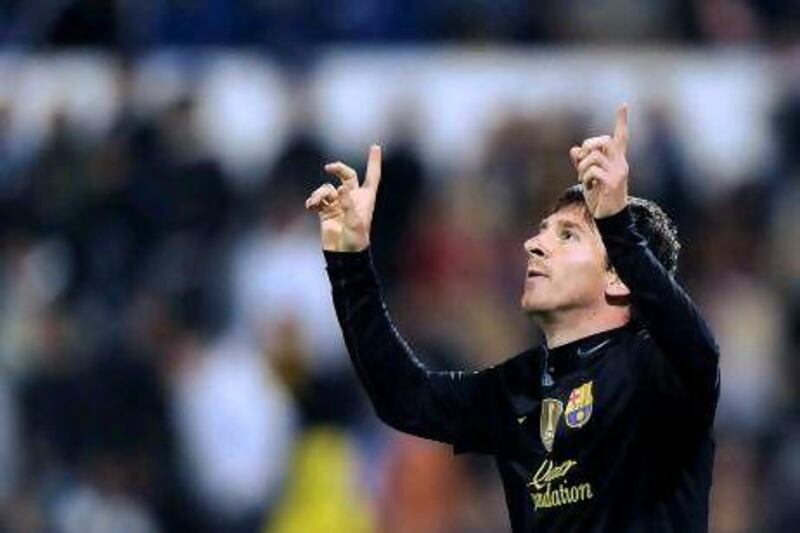To note Lionel Messi's 60th goal of the season this week was to be reminded, not so tangentially, of Jahangir Khan. Messi's feats, particularly this season but over the last few as well, have put him in that kind of space of such sustained levels of genius that it is, frankly, scary.
This has been like revisiting Steffi Graf in 1988 and '89, Roger Federer from 2004 to '06, Michael Schumacher during the first half of the last decade, Usain Bolt right now, Michael Jordan in the years leading up to and including the first "three-peat".
But maybe none, not even Messi, have inhabited the space Jahangir did for five years in the 1980s.
Five years, seven months and one day, to be more precise.
Jahangir did not lose a single match between April 1981 and November 1986, winning 555 consecutively; only once in that time was he even stretched to five games. Tournaments were won without dropping games, even single points.
So dominant had he become - "a polite tyranny", his biographer Keith Miles called it - that Jahangir could and would control the length of matches to suit broadcasters.
So (this nugget from the people who headed Pakistan Television's sports coverage at the time) if he was scheduled to play at 7.45pm and PTV had to air the news at nine, he would simply prolong his match until then. Or conversely, he would finish them quicker.
Always he would win.
But the thing that comes to mind about Jahangir's reign (and it does so in the sheepish manner the great Detective Columbo appended to his inquiries: "Oh, and one more thing") is actually about everyone else whose job it was to stop him.
The point was often raised, though never with any real zeal or thoroughness, about the state of squash and opposition at the time Jahangir was at his peak.
And at some moment in all such periods, it first becomes polite to raise this point before becoming imperative. It is only a question of when to do it.
Has that time come with Messi?
It is less straightforward in team sports such as football, where Messi's goals are dependent on his own teammates as well as him and the opposition.
But that many in a season, in the last few seasons, should not be a cause for celebration and analysis of his genius alone. That happens enough and regularly.
Should not a parallel discussion be conducted of the standards of the rest deployed to stop him?
Indirectly this has already surfaced earlier in the Primera Liga this season, although then it concerned the separate league Real Madrid and Barcelona were in. Only by extension can we presume Messi to have been part of that debate.
In some places, there is a more pressing need to do this.
Don Bradman's place as the greatest batsman ever is probably right. But the freak value of a career figure of 99.94 built over 20 years should long ago have prompted a deeper wondering about the quality of opposition, surfaces and even the administration of the day; when he was tamed once - relatively speaking - during the Bodyline series, the game was quick to outlaw the tactic altogether.
To be sure, this is not detracting from what Messi, Jahangir, Bradman and all the others have achieved.
It is shifting the focus to the others who, simply put, could not quell them at the time.
At one point in his streak, Jahangir even began competing on the North American circuit, with a harder ball and different pace, partly because the money was better and partly because he had beaten everyone. Repeatedly. He conquered North America, too.
Finally, when a challenge emerges, a competing, countering pull, it can feel like it is too late. Once Ross Norman ended Jahangir's streak, Jansher Khan arrived, the Rafael Nadal to Jahangir's Federer in so many ways, and eventually ended the era.
But now, was it that the champion was jaded and had lost a little sharpness or that the challenger was genuinely better?
Coinciding peaks are rare.
In football, where the confrontation is not strictly one-on-one, these matters are even more complicated.
In any case, eventually, by definition greatness cannot be prevented. It must rise above its circumstance and environment. Often it changes what is around it. But it must also pay due to those who challenged it most forcibly in the hope of causing even occasional imperfection.
Follow us
[ @SprtNationalUAE ]
& Osman Samiuddin
[ @OsmanSamiuddin ]





